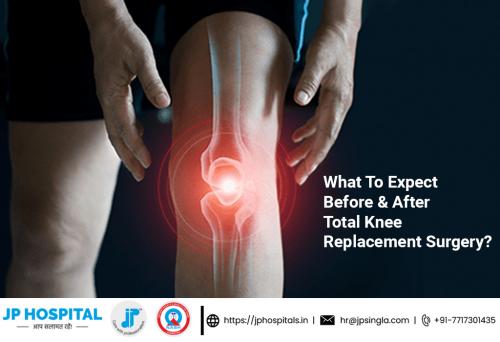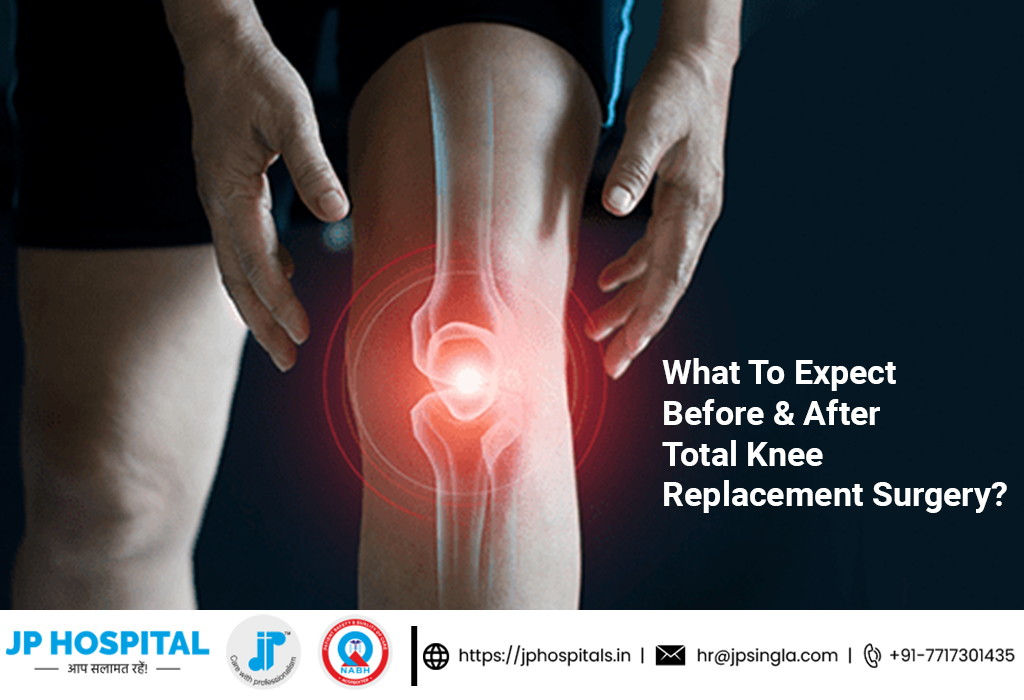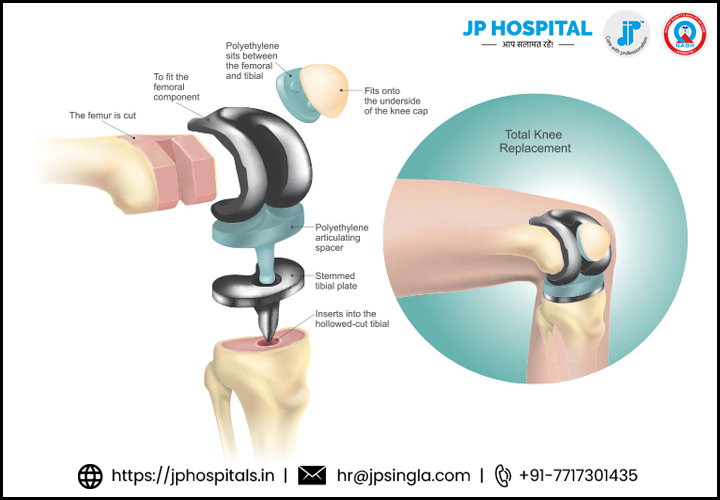What to Expect Before & After Total Knee Replacement Surgery?


Knee arthroplasty, often known as a complete knee replacement, is a surgical operation used to replace the entire knee joint and restore function to severely damaged or afflicted knee joints. According to research by the World Health Organization (WHO), osteoarthritis has a prevalence rate of 22% to 39% in India, making it the most frequent joint illness and the second most common rheumatologic disorder.
Total knee replacement treatments are now required for treating patients with a variety of knee diseases, according to Dr. Kulwinder S. Shah, Consultant- Orthopaedics & Joint Replacement Surgery, JP Hospital, Zirakpur, Punjab.
During the surgery, the kneecap, thighbone, and shinbone's deteriorated cartilage and bone are removed, and they are replaced with an artificial joint composed of premium plastics, polymers, and metals.
How Should I Prepare For A Total Knee Replacement?
Before the procedure, a doctor or anesthesiologist may advise the patient to stop taking specific dietary supplements and medications, such as aspirin and non-steroidal anti-inflammatory drugs (NSAIDs), which make it more difficult for blood to clot, steroids and other drugs that have an impact on immune system function and raise the risk of post-surgical infection, and opioid painkillers, which lower tolerance to different painkillers. Patients should also let their doctor know if they take any nutritional supplements or homoeopathic medicines.
The patient should also abstain from eating or drinking after midnight on the day of the surgery. In addition, medical professionals advise taking the following actions prior to a complete knee replacement procedure:
reducing the use of tobacco
Doctors strongly advise minimising cigarette use before knee arthroplasty because nicotine increases the risk of deep vein thrombosis or post-surgical infection and slows healing.
decreasing alcohol consumption
Alcohol consumption should be kept to a few beers prior to the surgery because it interferes with the anesthetic's effects.
Disclosing any underlying ailments or diseases
Patients must let their doctors know before the surgery if they have a cold, the flu, a herpes outbreak, or any other illness.
Due to the fact that a complete knee replacement procedure is a significant surgery, it necessitates a number of preliminary and diagnostic procedures, such as electrocardiograms, urine tests, and checks on the blood count and blood clotting process (ECGs). Most frequently, a spinal, epidural, or general anaesthesia is used during the treatment. JP Hospital is one of the best multispeciality hospitals if you're looking for the Best knee replacement surgeon near me for the Zirakpur area. We have a team of expert doctors who are highly experienced and skilled in providing post-operative care for patients who have undergone knee replacement surgery. We provide excellent care for our patients.

Post-Op Care for Total Knee Replacement
Painkillers are typically administered by the doctor after a total knee replacement treatment to reduce pain and discomfort. While non-opioid (non-narcotic) medications are typically used to reduce pain, opioid (narcotic) medications may occasionally be provided in advance of physical therapy and sleep for at least a few weeks.
Pain is typically treated with a combination of pain-relieving methods that limit adverse effects and work well together. Multimodal analgesia is the name of this technique. If the patient's pain is under control, they can be urged to take a short walk with the aid of a walker or a physical therapist because doing so soon after surgery usually speeds up the healing process.Consult our orthopaedics specialist at JP Hospital in Zirakpur to learn more about the procedure.
To reduce the danger of blood clots in the legs, the patient is also instructed to walk around a little as soon as possible, conduct certain exercises (under the guidance of a physical therapist), take anti-clotting drugs, and wear compression boots (also called deep vein thromboses).
To reduce the incidence of infections following total knee replacement surgeries, doctors also prescribe antibiotics. In order to lower the risk of infections, patients are also encouraged to follow a nutritious diet, refrain from smoking, and manage their blood sugar levels (if they have diabetes).
A crucial element of the healing process is physical therapy. For a knee replacement treatment to be successful, the patient must have a specific and efficient recovery and rehabilitation plan.
Get out of the hospital sooner
swiftly regain knee strength and range of motion
resume physical activity
prevent issues
Additionally, some medical professionals advise patients to use continuous passive motion (CPM) machines, which gradually move the damaged limb while the patient is resting on their back to help straighten and bend it. A patient can utilise this device for up to 8 hours per day. Patients are also advised to use these devices when recovering at home after being released from the hospital.
How Much Weight Can a Knee Support Safely Support After a Knee Replacement?
Patients who have had a total knee replacement are given specific weight-bearing instructions to follow both in the hospital and at home after the procedure. Following the operation, the following variables typically affect the amount of pressure the knee can withstand:
The type of surgery performed (one-sided knee replacement or a total knee replacement)
The prosthesis used and how it can be attached to the native bone are all factors.
To speed up healing, patients will be urged to progressively place more weight on the knee.
Post Your Ad Here
Comments